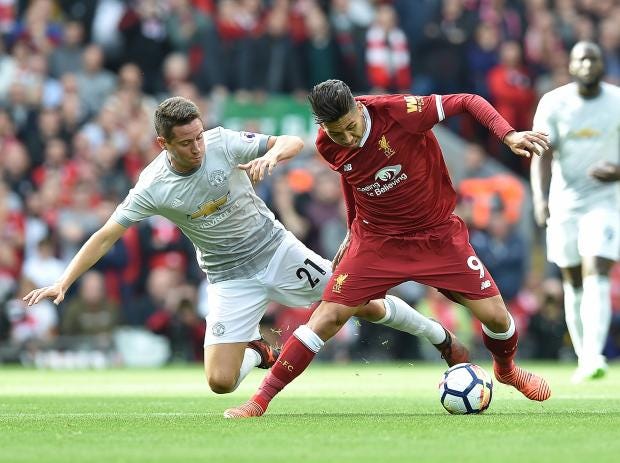“There’s still time for this one to break down, we’re not
there yet”. As we reached Marylebone, where we finally found a train heading
back to where we needed to go following a missed connection, a journey into
London, a closed tube line and a hastily-located bus, optimism was thin on the
ground. Hours earlier, similar creeping doubts pervaded those around us in the
Upper Main Stand as Liverpool sat on a slender 1-0 lead, having already missed
a penalty. But, much like the last train to Oxford, the team came good:
questions had been asked, but in the end the answer was emphatic.
A late change in the line-up saw Dejan Lovren replaced by
Ragnar Klavan. This gave cause for some concern in the opening fifteen minutes
– the Estonian was repeatedly targeted, and lost multiple duels to Depoitre. It
was only the lack of ambition from Huddersfield that prevented this from
developing into a more serious problem; there were rarely any runners looking
to meet these flick-ons, and Liverpool were allowed to clear up without too
much difficulty. The assuredness with which these situations were dealt with is
also attributable in part to the interesting role played by Joe Gomez. He was
ostensibly at right-back, but regularly drifted inside to essentially function
as a third centre-back: Matip could consequently play closer to Klavan, and
sweep up some of his missed clearances. This system worked well, and Gomez
excelled in it; his confidence and poise was one of the few positives in a
generally lacklustre first half, and in truth a convincing case could be made
for naming him Man of the Match. Going forward, it was only Salah that looked
even vaguely likely to make something happen; in a harsh irony, it was he who
missed the penalty late in the half that would have made Liverpool much more
comfortable going into the break. Daniel Sturridge failed to make any kind of
mark on the half – he spent most of the time as neither one thing nor the
other, failing to make darting runs in behind but not coming short to receive
passes much either.
At 2-0, arguably the most pleasing passage of the game
ensued. The tempo was taken down a notch, and Liverpool asserted near-complete
control: this has been rare indeed in recent times. That is not to say that
attacking intent was extinguished completely, but the midfield began waiting
for gaps as opposed to trying to force them. Unbelievably, Jordan Henderson has
been taking criticism for this – he played a few balls sideways and backwards
when a forward pass would have been a needless risk, and this apparently opens
him up for abuse. There are often legitimate criticisms to be made of the
captain, but he was an important part of the win on this occasion. It was one
of his midfield partners, however, that added the clinching third goal:
Wijnaldum’s first of this campaign bore a striking resemblance to his last of
the previous season, as he curled it in powerfully at the near post despite
seemingly lacking the angle to do so. It was nowhere near as crucial as his
goal against Middlesbrough, but it could be important on a personal note – he
has had a shaky start, and a goal could do him the world of good.
Solanke and Oxlade-Chamberlain were brought on in the latter
stages of the game, and both impressed. They linked up nicely, and not just in
the obvious ‘run down the byline, cross for the target man’ way; there was some
of that, but there was also a nice interchange on the edge of the box that
should really have resulted in Solanke adding a fourth. The other substitute,
Can, was also very solid – it was great to have such accomplished options off
the bench. He kept up the intensity with some good pressing, and added a
further controlling presence in the middle of the park. This contributed to a
very pleasing clean sheet, and a satisfying afternoon all round.
Liverpool now have a great opportunity to notch up
back-to-back wins in response to the shambles at Spurs; Maribor in midweek
offers an excellent chance to get some momentum going with another victory.
Another performance such as this one will surely see Klopp’s men take a big
stride towards qualification from the Champions League group stage – let’s hope
the players got home quicker than I did and were able to get some rest!
- Follow me on Twitter
@JamesMartin013
